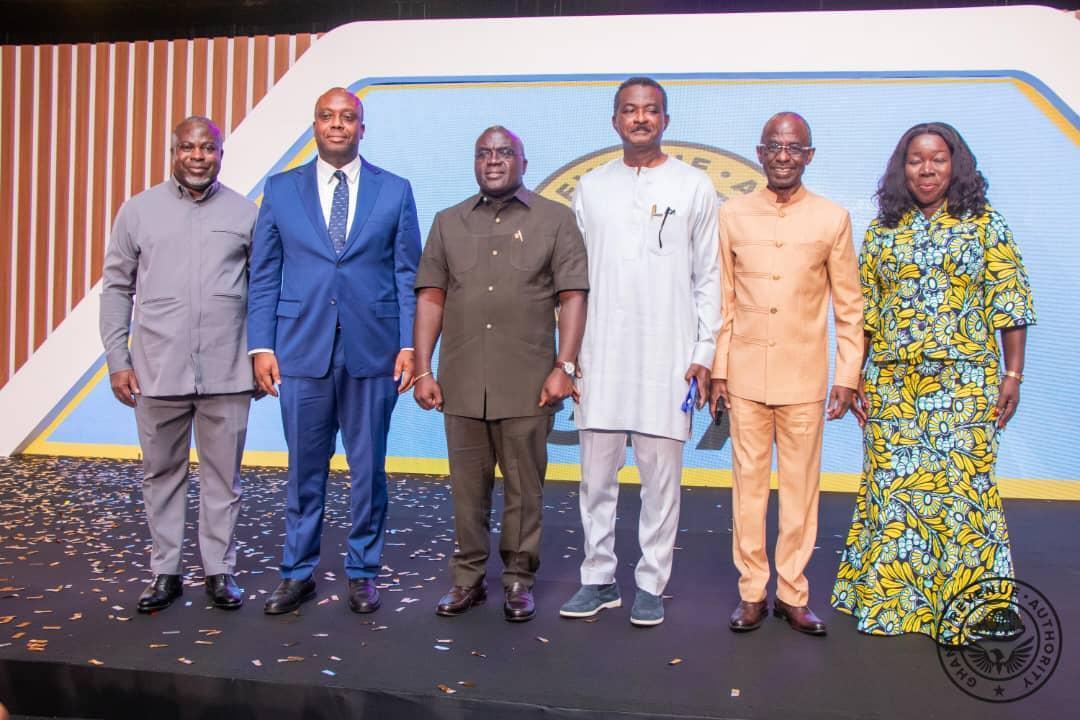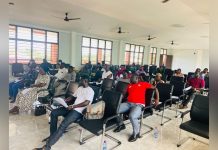Africa-Press – Ghana. The government, through the Ministry of Finance and the Ghana Revenue Authority (GRA), has launched the Sustained Tax Education Programme and Modified Taxation Scheme.
The three-year national tax drive is to increase tax awareness, promote voluntary compliance, and measure responsible service.
The event was on the theme: “Promoting Voluntary compliance through Sustained Tax Education.”
Mr Julius Debrah, Chief of Staff, said building trust was essential to sustain every vibrant tax system.
He said revenue mobilisation was the backbone of national development, influencing a country’s ability to invest in infrastructure, social programmes, and economic stability.
The Chief of Staff said the country’s tax system must be understood, trusted, and sustained by all.
“We must move from seeing tax as a barrier or inevitability, to seeing tax as an investment within the burden of our dear nation,” he added.
He said as part of the reset agenda, the government must take the bold step of materially generating enough revenue to fund their environmental projects.
He urged all citizens and residents to make efforts to understand the need to voluntarily declare and pay adequate taxes to ensure national development.
Mr Debrah said the sustained tax education campaign would utilise a variety of educational strategies, tools, and actual effort to ensure that all taxpayers and the public were well informed about their duties, obligations, rights, tax processes and procedures, and the benefit of voluntarily complying among others.
He said tax education was not a minor matter, but key in helping to build an understanding for citizens to know what they owe, why they owe it, and how the funds were used.
He called on the Authority to carry out the campaign across the country, creating opportunities for citizens and residents to understand the tax system.
“We must all contribute our fair share in taxes, to be able to boldly demand accountability from our government,” he added.
Mr George Kweku Ricketts-Hagan, Board Chairman of the GRA, said the initiatives reflected the government’s renewed commitment to reset, rebuild the economy, strengthen well-being, organisation, and restore trust in the tax administration system.
He said Ghana’s tax compliance challenge, particularly in the informal sector, is well known.
He said data from the Ghana Statistical Survey, 2023, revealed that the informal sector constituted 80 per cent of Ghana’s workforce.
However, its contribution to GDP, as the Commissioner-General said was just around 30 per cent.
“Though the informal economy employs many Ghanaians, only a small proportion are registered tax payers,” he said.
He said this gap existed largely because many of the informal sector lack basic knowledge of how the tax system works, and how taxes they pay benefit communities.
He said the campaign, amongst others, aimed to connect the act of paying taxes to the visible benefits citizens enjoy, the roads we drive on, the schools and hospitals we use, and the peace and security that sustains our nation.
He said the Authority together with the Ministry of Finance aimed to improve domestic revenue compliance and achieve sustainable non-oil tax revenue consistent with Ghana’s medium-term fiscal targets.
Mr Anthony Sarpong, Commissioner-General, GRA said revenue mobilisation from taxation remained the lifeblood of the country’s national development.
He said it was through taxes that the country would build roads and schools, equip hospitals, empower local governments, and secure the foundations of a strong economy, as well as maintain peace and security.
“Our progress as a nation depends not on external aid, but on our collective commitment to continue faithfully to
raise domestic revenue for our common good,” he said.
He said the Authority was dedicated to ensuring that the tax system was transparent, equitable, accessible, and aligned with the realities of modern Ghana.
Mr Sarpong said it was also committed to a system that rewarded tax compliance, promoted trust, and created a convenient, positive customer experience for the taxpayers to fulfil their civic responsibility of contributing their fair share to revenue mobilisation.
He said the initiatives, announced by the Ministry for Finance in the 2025 Budget Statement mandated the GRA to implement the programme to improve general tax knowledge and civic responsibility of citizens and residents for tax purposes.
The Sustained Tax Education Programme will equip citizens with practical knowledge on how to register, file, and pay taxes correctly and on time.
The GRA has developed a three-year plan to guide the implementation of this programme across the nation.
The programme aims to deepen citizens’ understanding of the tax system and their role in nation-building.
The initiative moves beyond periodic campaigns and it seeks to prepare tax
education into the national consciousness, targeting micro, small, medium, and large companies, schools, universities, markets, professional associations, and digital platforms.
For More News And Analysis About Ghana Follow Africa-Press







